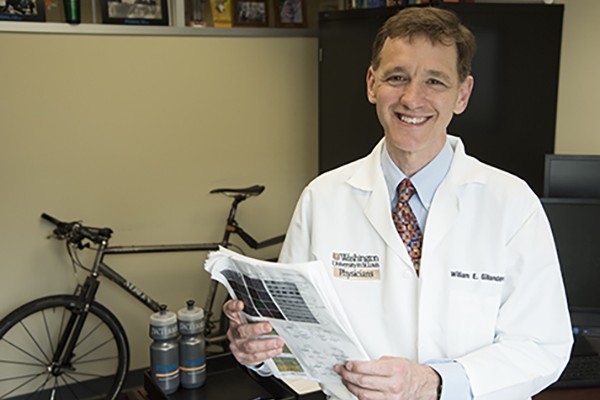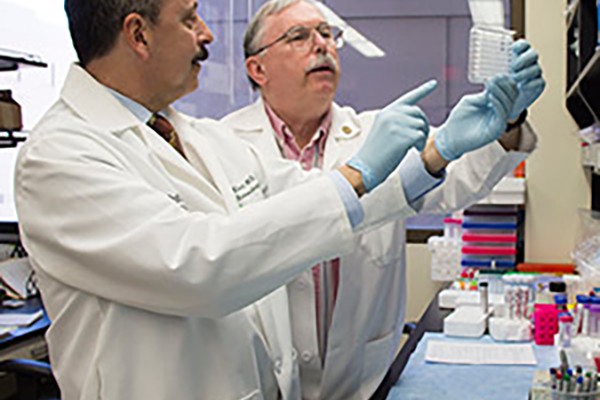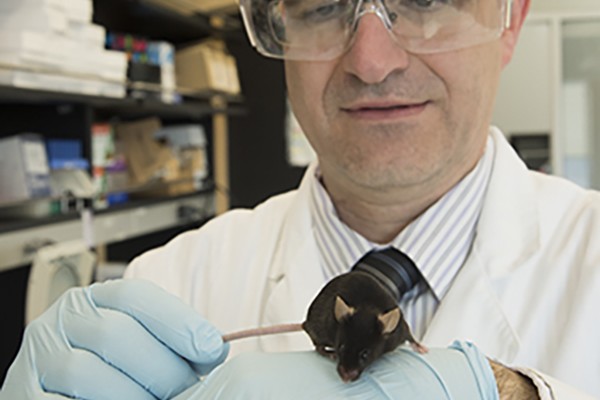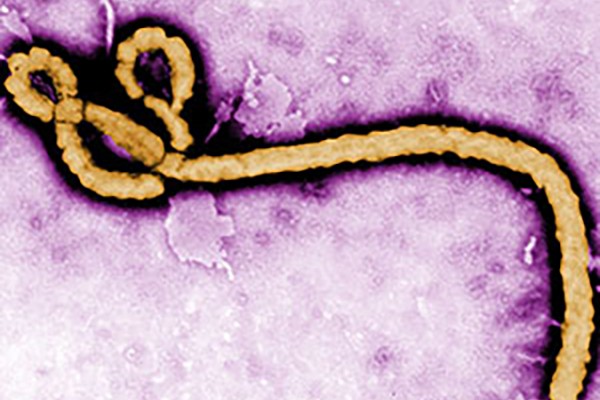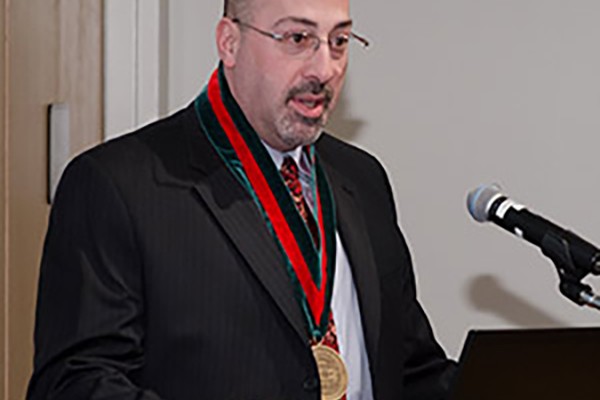Washington People: William Gillanders
William Gillanders, MD, a physician-scientist and avid cyclist, keeps the wheels turning in the race against breast cancer. His career goal is to change treatment paradigms by making breast cancer vaccines a reality for those being treated for the disease.
Radiation oncology directors named at Siteman
Siteman Cancer Center’s parent institutions have named two new leaders in radiation oncology. Dan Kinzel is executive director of radiation oncology at Washington University School of Medicine. Sharon Endicott is director of radiation oncology for Barnes-Jewish Hospital.
Kidney cancer detected early with urine test
Finding kidney cancer early has been among the disease’s greatest challenges. Now, researchers at Washington University School of Medicine in St. Louis have developed a noninvasive method to screen for kidney cancer that involves measuring the presence of proteins in the urine.
Vitamin D prevents diabetes and clogged arteries in mice
A deficiency of vitamin D has been linked to Type 2 diabetes and heart disease, two illnesses that commonly occur together and are the most common cause of illness and death in Western countries. Now, new research in mice led by the School of Medicine’s Carlos Bernal-Mizrachi suggests vitamin D plays a major role in preventing the inflammation that leads to Type 2 diabetes and atherosclerosis.
Blumer receives NIH grant for protein signaling research
Kendall J. Blumer, PhD, professor of
cell biology and physiology at Washington University School of Medicine
in St. Louis, has received a four-year, $2.2 million renewal grant from
the National Institute of General Medical Sciences of the National
Institutes of Health (NIH) for research titled “Mechanism and Regulation
of Receptor-G Protein Signaling.”
Study sheds new light on asthma, COPD
In cells lining the airway, high levels of certain proteins have long been linked with the overproduction of mucus characteristic of diseases like asthma and COPD. New research from the School of Medicine provides clues to potentially counteract inappropriate mucus production.
Washington University, St. Louis to host anthropology, human biology scientific meetings March 24-28
The importance of human milk in evolution and modern
health; biology and race in Ferguson; and the latest research on Cahokia
Mounds will be among the presentation topics as three major human
biology and anthropology professional groups converge in St. Louis for
their annual scientific meetings March 24-28.
Imai receives NIH grant for aging research
Shin-ichiro Imai, MD, PhD, professor of developmental biology and of medicine at Washington University School of Medicine in St. Louis, has received a five-year, $1.56 million grant from the National Institute on Aging of the National Institutes of Health (NIH) for research titled “eNAMPT-mediated Adipo-hypothalamic Communication for NAD+ Production and Aging.”
Global conference to focus on emerging infectious diseases
Researchers from around the world will gather April 10 to discuss the risk of emerging infectious diseases, and how best to translate research to clinical care, at the third annual conference of the Washington University Center for Global Health and Infectious Disease.
DuBois named Bander professor of medical ethics
James M. DuBois, DSc, PhD, has been named the Steven J. Bander Professor of Medical Ethics and Professionalism at the School of Medicine. In his research, DuBois develops measures to assess outcomes of training programs in ethics and professionalism in medicine and conducts social science studies of patient and research participant attitudes.
View More Stories
